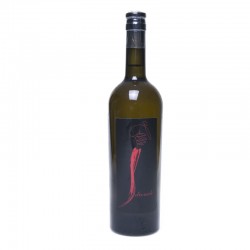




Mead from honeydew is produced by the fermentation of a mixture of water and honeydew honey from apiaries located in the Vesuvius National Park.
Aged in wooden barrels Bottle of 37.5 cl Alcohol content 13% Alc. Vol
Water, honeydew honey Contains sulfites
Mead is traditionally known as "Honey wine". In ancient times, it was known as the "drink of the gods" and is probably the oldest fermented drink in the world. We know of mead from ancient Egypt, ancient Greece, and Viking Scandinavia, but there are probably many others produced in other places. Today, its preparation follows rational rules, but the base ingredients remain the same as those used 2000 years ago: honey, water, and yeast.
It may interest you
Honeydew mead, a beverage with millennia-old origins, takes us on a fascinating journey through time to discover the history of this ancient drink. Its history is rooted in ancient Greece, where it was considered the elixir of the gods. The ancient Greeks believed that honeydew mead was a gift from the gods to humanity, endowed with healing and beneficial properties. Over the centuries, this beverage spread worldwide, taking on various cultural forms and traditions. Today, honeydew mead is still appreciated for its unique flavor and nutritional properties, continuing to be a drink of great allure and historical value.
To produce honeydew mead, a fermentation process must be followed, combining honey and water with the addition of special yeasts. Initially, the honey is diluted in warm water, creating a sweet must. Next, a selected strain of yeast is added, which will transform the sugars in the must into alcohol. This fermentation process can take several days or weeks, depending on the desired type of mead. During this time, the alcohol content gradually increases while the flavor and aroma develop. Once fermentation is complete, the honeydew mead is generally left to rest for an aging period, during which the flavors further balance. Finally, the honeydew mead is filtered and bottled, ready to be enjoyed. This artisanal process gives each bottle of honeydew mead a unique and rich character.